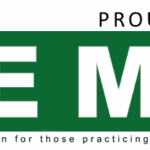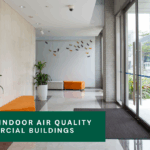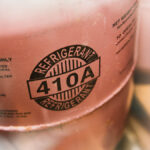Sustainability Tips That Save Money
HVAC systems are among the most energy-intensive mechanisms of any business. In fact, space cooling alone accounts for 15% of the electricity used in commercial buildings on average.1 According to the U.S. Department of Energy (DOE), much of the energy and cost that goes into powering HVAC is lost to waste – upwards of 30% in the average commercial building.2
Reducing wasted HVAC energy consumption is an important building block in the push for greater sustainability in the business world. It is also a great way to substantially reduce operating costs. And many of the steps that business owners and managers can take to improve sustainability and reduce costs require little to no expense. Many of those steps are also incredibly simple, and the more complex waste-reducing practices often offer excellent return on investment.
Business owners or managers who want to improve environmental sustainability while at the same time reducing operating costs should consider the HVAC energy saving tips listed below. All of these tips can be made even more effective by working with our Energy Services engineers and experts.
Reduce wasted energy by 5-10% by regularly changing HVAC filters.
Dirty filters overwork HVAC systems by restricting air flow, cost far more to use, lead to poor indoor air quality and result in far more commercial HVAC maintenance issues and costs. Check HVAC filters on a quarterly basis. Hunton Services offers options for service and maintenance agreements to ensure your equipment is well maintained and filters are changed regularly.
HVAC filters should be changed every month. At the longest, HVAC filters should be switched out every three months. Switching out dirty filters is one of the simplest sustainability steps a business can take, and it can reduce wasted energy costs by 5-10%.
Save hundreds of dollars a year with programmable thermostats.
Temperature settings in a business can often be contentious. Installing programmable thermostats removes much of the burden of tailoring temperature settings to meet the desires of a diverse workforce and customer base by focusing on sustainability and reduced costs.
Installing programmable thermostats can affect sustainability and wasted energy in a number of ways. Building temperatures can be set to run at higher or lower temperatures (depending on the season) when indoor spaces are not in use, which can save hundreds of dollars a year.3
Programmable thermostats are available in 7-day models, which are ideal for regularly changing schedules; and 5+2-day models, which are appropriate for businesses that operate on regular five-day schedules where less energy use is required on weekends or other two-day periods.
Hunton Services can help business owners and managers find programmable thermostats that are most effective for their respective businesses.
Reduce commercial HVAC maintenance costs by 40% with regular quality maintenance.
Commercial HVAC maintenance is like getting a tune-up for a car – both are necessary for top performance. Regular quality maintenance on all HVAC systems and equipment ensures that those systems and equipment are not wasting energy due to substandard, aging or faulty performance.
Taking a proactive approach to a building’s HVAC systems through regular quality maintenance can reduce commercial HVAC maintenance costs by up to 40%.4 But the key to unlocking that level of savings is working with a qualified mechanical contractor who can provide the kind of in-depth knowledge, work, and advice that is crucial to properly maintaining HVAC systems and equipment. Hunton Services is here to help with just that.
Improve HVAC efficiency by 20% by properly sealing heating and cooling ducts.
Doing something as simple as properly sealing heating and cooling ducts can improve HVAC efficiency by 20% or more. Finding an HVAC technician with experience sealing ducts is the best way to maximize added efficiency.
Ducts can be sealed using mastic, foil tape or blown-in duct sealant, such as Aeroseal. The sealing effect is further improved by wrapping the ducts in insulation. Focus first on areas of the building that are unprotected – underneath the building or in unheated/cooled storage spaces.
Improve efficiency by 5-20% with HVAC upgrades and/or HVAC replacement.
Sometimes the best ways to improve HVAC efficiency come through upgrading or replacing existing HVAC equipment and systems. Running HVAC systems and equipment past their suggested lifespans leads to exorbitant energy and maintenance costs.
If a building’s air conditioner or heat pump is more than 10 years old, replace it with ENERGY STAR-certified products. ENERGY STAR-certified air conditioners and heat pumps can improve sustainability and reduce energy costs by up to 20%.5 Furnaces or boilers that are more than 15 years old will also likely be due for upgrades or replacement, and ENERGY STAR-certified furnaces and boilers also offer significant cost and energy savings.
Retrofitting existing packaged rooftop HVAC units with advanced digital economizer controls and/or sensors that bring in ventilation air only when needed – also known as demand controlled ventilation – is yet another important and successful way for businesses to significantly improve energy efficiency.
Optimize HVAC sustainability by working with a qualified HVAC contractor.
In order to get the most out of any HVAC repair, upgrade or replacement, work with a qualified HVAC contractor, like Hunton Services. We can perform regular checkups and advise business owners on when and how to perform necessary maintenance.
Participating in a utility quality maintenance program, like the one offered by PG&E, is among the most effective ways to ensure the long-term viability of an HVAC system.








No comments yet